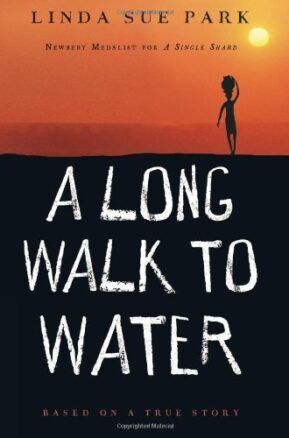
Disgrace Summary of J.M. Coetzee's Book

Disgrace by J.M. Coetzee: A Masterpiece of Post-Apartheid Literature
J.M. Coetzee's novel, Disgrace, published on January 1, 1999, is a powerful and thought-provoking work of fiction set in post-apartheid South Africa. The story follows the life of David Lurie, a 52-year-old professor of communications and Romantic Poetry at Cape Technical University. Through Lurie's experiences, Coetzee explores themes of power, violence, race, and redemption in a society still reeling from the effects of apartheid. The novel delves deep into the complexities of human relationships and the consequences of personal choices.
Characters
David Lurie
David Lurie is a twice-divorced professor who leads a somewhat comfortable yet passionless life. His affair with one of his students sets off a chain of events that leads to his downfall. Throughout the novel, Lurie struggles with his own sense of entitlement and privilege, ultimately facing the consequences of his actions.
Lucy Lurie
Lucy is David's daughter, who lives on a small farm in the Eastern Cape. She becomes a victim of a brutal attack that changes her life and her relationship with her father. Lucy is a strong and resilient character who must navigate the complexities of race, power, and forgiveness in post-apartheid South Africa.
Petrus
Petrus is Lucy's neighbor and a prominent figure in the local community. He represents the changing power dynamics in South Africa and serves as a foil to David Lurie. Petrus's actions and motives are often ambiguous, adding layers of tension and conflict to the story.
Bev Shaw
Bev Shaw is a friend of David Lurie and a fellow resident at Lucy's farm. She runs an animal shelter and provides a sense of stability and support for the characters amidst the turmoil they face. Bev's character adds depth and warmth to the novel, highlighting themes of kindness and compassion.
Melanie Isaacs
Melanie is one of David's students who becomes entangled in a scandalous affair with him. Her character serves as a catalyst for David's downfall and forces him to confront his own actions and beliefs. Melanie's presence in the novel raises questions about power dynamics, consent, and morality.
Detailed Summary
In Disgrace, David Lurie finds himself entangled in a scandal when he has an affair with one of his students, Melanie Isaacs. The affair leads to Lurie's dismissal from his position at the university and forces him to confront the consequences of his actions. Seeking solace, Lurie visits his daughter, Lucy, on her farm in the Eastern Cape.
Lucy, a strong and independent woman, is brutally assaulted by a group of men, leaving her traumatized and vulnerable. As Lucy tries to rebuild her life, Lurie must confront his own privilege and complicity in a society still grappling with the legacies of apartheid.
The novel explores themes of power, violence, and redemption as Lurie and Lucy navigate their fractured relationship and the challenges of living in a changing South Africa. Through their struggles, Coetzee paints a vivid portrait of a society in turmoil and individuals grappling with their own sense of identity and morality.
Analysis
Disgrace is a searing and poignant exploration of the human condition in post-apartheid South Africa. Coetzee's prose is spare yet powerful, drawing readers into the emotional lives of his characters with precision and nuance. The novel confronts difficult questions about race, power, and privilege, challenging readers to confront their own biases and assumptions.
David Lurie's journey from entitlement to humility is a compelling arc that mirrors the larger societal shifts taking place in South Africa. Through Lurie's experiences, Coetzee reveals the complexities of forgiveness and redemption in a world marked by violence and injustice. The character of Lucy serves as a powerful counterpoint to Lurie, illustrating the resilience and strength of a woman facing trauma and hardship.
Overall, Disgrace is a masterful work of literature that shines a light on the complexities of human relationships and the enduring legacy of apartheid. Coetzee's portrayal of South Africa is both intimate and universal, offering readers a glimpse into a society in transition and individuals struggling to find their place in a changing world.
Final thoughts
To conclude, Disgrace by J.M. Coetzee is a compelling and thought-provoking novel that explores the complexities of power, privilege, and redemption in post-apartheid South Africa. Through his vivid characters and evocative prose, Coetzee captures the challenges and struggles of individuals grappling with their own sense of identity and morality.
I highly recommend reading the complete book to fully appreciate the depth and richness of Coetzee's storytelling. Alternatively, the audiobook version is also a fantastic option for those who prefer to listen to the story unfold. Regardless of how you choose to experience Disgrace, I guarantee you will be moved and transformed by this powerful work of fiction.
9780143036371 (ISBN10: 0143036378)






Related Books